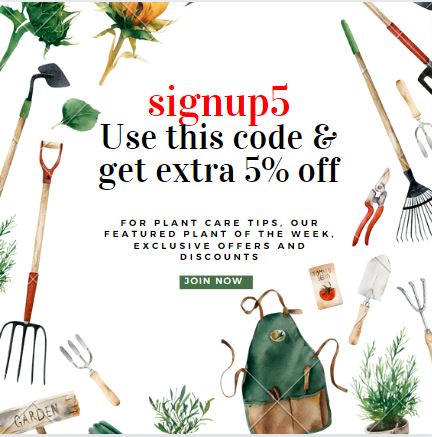5 vegetable seeds to grow in your kitchen garden
Vegetable gardens can be a great way to get fresh, organic produce on hand. Not only is it eco-friendly and sustainable, but it can also be a fun activity for the whole family! In this blog, we'll cover the basics of vegetable gardening: from starting your kitchen garden to growing your fruit and vegetables. We will also give you some tips for making your vegetable kitchen garden as satisfying and sustainable as possible. Quick, it’s time to start growing your healthy food. Join us as we explore everything you need to know about how to start, grow, and harvest your vegetables in this beginner's guide to gardening!
There is nothing wrong with starting your vegetable garden from seeds many people do! There are a few vegetables that can be very easy to grow from seed and are purchased as seeds from a garden store/nursery but it's good in results. Transplanting also gives you a head start on growing tender vegetables like tomatoes, peppers, and eggplant, which need a long growing season in hot weather.
Common Vegetables that can be grown in your kitchen garden-
Lettuce-
There are many varieties to choose from, all of which are highly resistant to pests or diseases. Slugs seem to be a big problem and can be handled with some beer containers. Lettuce prefers the cool temperatures of spring and fall and although it prefers full sun, it will also accept some shade. Sow the seeds directly into the soil in rows about 12 to 18 inches apart and when the seedlings develop their second set of leaves, thin them out to 4 to 6 spaces between plants. If you plant lettuce every two weeks, you will get lots of leaves for salads for many years.
Lettuce or salad greens are garden vegetables and excellent sources of beta carotene (vitamin A) that can be grown in pots or small spaces. It's easy to grow and goes well with any salad you can think of!
Green Beans-
Beans grow even in poor soil because they fix nitrogen over time! Different plants do not require training, but the plant provides a long harvest. In a good place, the easiest snap character. In hot zones, lima beans, southern peas, and asparagus are easy to grow. All bean plants grow very fast and thrive in warm, moist soil. Once you have a few bean plants in your garden, you'll be able to harvest fresh beans all summer long! If you're looking for an alternative to beans, consider planting potatoes. Potatoes are another vegetable that is easy to grow and produces lots of tubers for your cooking.
Cucumbers-
I grow both bush and vine varieties of cucumbers and always have a lot to share with my neighbors during the summer months. Vining varieties produce more cucumbers if they support and grow, but I grow them in the ground without difficulty. Plant the seeds the same way you would plant beans, but space them about a foot apart. A layer of cloth placed in June or July will help regulate the amount of water in the soil and if you see white leaves due to powdery mildew, remove it only to prevent the spread of the fungus. The leaves will not be healthy and this does not seem to affect the number of cucumbers produced.
Carrots-
We include carrots only because they are easy to grow if they hit loose, sandy soil during the cooler part of the growing season, spring and fall (carrots can frost are not allowed). Not all carrots are orange; Different types vary in color from yellow to white and some are resistant to diseases and pests. It’s a Low-Maintenance Vegetable.
Radish-
Radishes have the same properties as lettuce, except that you have to make them as small as 1 to 3 inches apart. It is one of the first vegetables you can plant in the spring, and some varieties can be harvested in about 45 days after sowing. Radishes are super nutritious for health. They work just as well in containers as they do in a large vegetable garden. You can eat them raw, cut them in a salad, or add them to a meal.
To grow bigger and more productive vegetables, add Pennington Ultra Green 10-10-10 All Purpose Plant Fertilizer to the soil around your plants. The nutrient-rich formula starts feeding immediately and continues feeding for up to four months. Always match your plants and pests with product labels and choose the right pesticide and slug and snail killer that is right for you. The Superbkishan families are committed to helping you grow a beautiful garden, producing and enjoying all the fruits and vegetables of your labor. Always read product labels carefully and follow directions, including guidelines for harvest time (PHI), plant that can be treated, and application frequency.




